On October 18, the 9th China Border Economic Opening and Development Forum (2025) was successfully held in Heihe City, Heilongjiang Province. This year's forum, themed "High-Quality Development of Border Economy and the Building of a Community with a Shared Future for Neighboring Countries," brought together leaders from national ministries, border provinces, and domestic experts and scholars in related fields to explore new paths, models, and drivers for high-quality development of border economies. The aim was to deepen practical cooperation between border regions and neighboring countries and contribute wisdom and strength to the building of a community with a shared future for neighbors.
This forum was jointly organized by Guangxi University, Heilongjiang University, China International Economic Cooperation Society, and the University of International Business and Economics, and co-hosted by China Border Economic Research Institute of Guangxi University, China-ASEAN School of Economics of Guangxi University, School of Economics and Business Administration of Heilongjiang University, University Alliance for Border Economic Research and Development, China International Economic Cooperation Society Border Economic Cooperation Committee, School of Economics of University of International Business and Economics, and Heihe University.
At the opening ceremony, Qian Keming, Member of the Standing Committee of the National Committee of the CPPCC and Deputy Director of the Committee on Science, Technology, Education, Health and Sports, Liu Zhengdong, former Vice Chairman of the CPPCC of Guangxi Zhuang Autonomous Region and former Secretary of the Party Committee of Guangxi University, Li Guozhong, Party secretary of Guangxi University, Gao Yuanyuan, President of the China International Economic Cooperation Society, Wei Ying, Vice president of Heilongjiang University, and Jing Tao, Member of the Party committee and Vice president of Heihe University, delivered speeches respectively. Song Yaoming, former Counselor for Economic and Commercial Affairs, Embassy of Japan, presided over the opening ceremony.
In his speech, Qian Keming pointed out that coordinating the opening-up of border regions with the modernization of governance is an important task of Chinese-style modernization. He emphasized that with higher-level openness and more efficient governance, border regions should become a key fulcrum for building a new development pattern, achieving the organic unity of "enriching the people and revitalizing the border" and "strengthening the border and consolidating defense." He fully affirmed the "ten-one" series of achievements made by the Institute of China Border Economic Research at Guangxi University and encouraged continued deepening of theoretical innovation and empirical research to serve the strategic needs of the nation.

Qian Keming, Member of the Standing Committee of the National Committee of the CPPCC and Deputy Director of the Committee on Science, Technology, Education, Health and Sports, delivers a remark at the forum
Liu Zhengdong pointed out that Guangxi University, leveraging its geographical advantages, has identified "border" as one of the four key research characteristics to be developed. In the past year, it has achieved numerous new accomplishments, including the inclusion of the China Border Economic Research Institute in the AMI Core Think Tank List and the selection of the brand forum "China Border Economic Opening Development Forum" as a "China Think Tank Reference Case." He emphasized the need to further enhance the distinctive "frontier" brand, successfully host the "China Border Economic Open Development Forum," strengthen collaborative innovation within the think tank alliance, and contribute Guangxi's wisdom to serving national strategies.
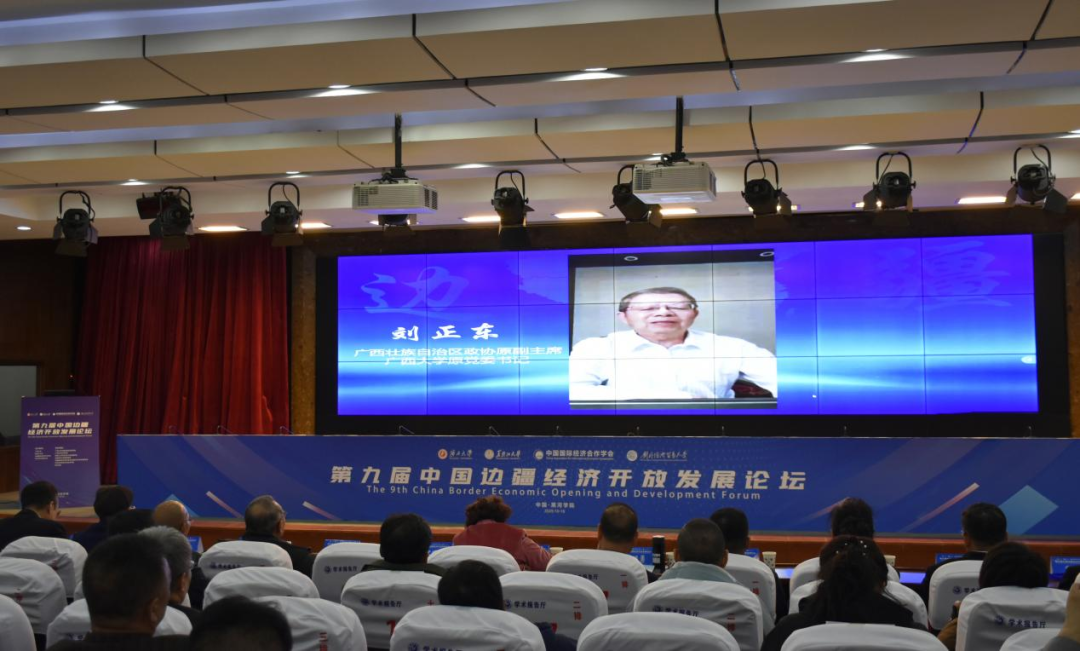
Liu Zhengdong, former Vice Chairman of the CPPCC of Guangxi Zhuang Autonomous Region and former Secretary of the Party Committee of Guangxi University, delivers a speech at the forum
Li Guozhong introduced the achievements of Guangxi University in the construction of "Double First-Class" and border economic research, stating that the university will continue to focus on collaborative innovation and talent cultivation to deepen theoretical research and build an independent border economics knowledge system in China. Gao Yuanyuan said that the China International Economic Cooperation Society will continue to deepen cooperation with Guangxi University, strengthen the Border Economic Cooperation Committee, promote the formation of a national border economic research network, and enhance the functions of think tank collaboration and decision-making consultation. Wei Ying and Jing Tao expressed their high regard and active participation in border economic research from the perspectives of Heilongjiang University and Heihe University respectively.
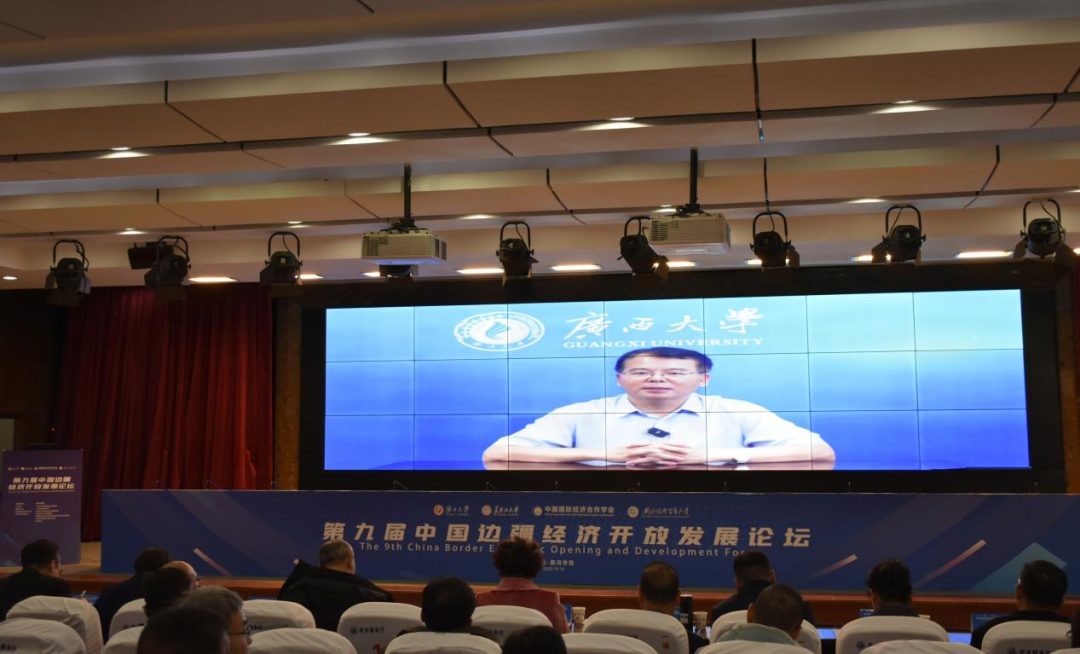
Li Guozhong, Party Secretary of Guangxi University, delivers a speech at the forum
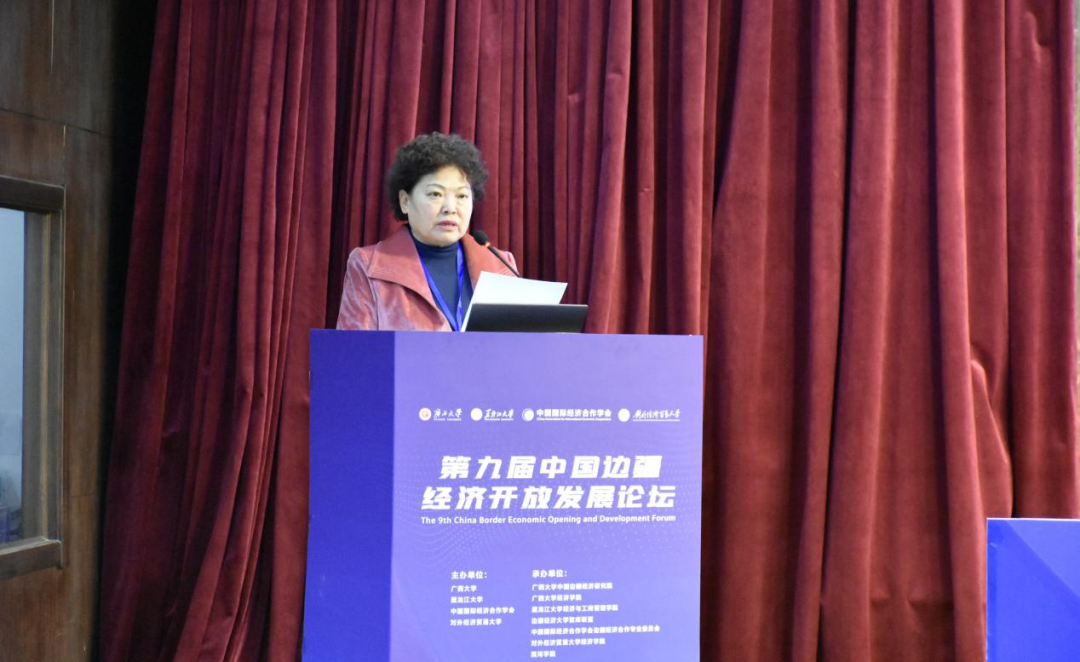
Gao Yuanyuan, President of the China International Economic Cooperation Society, delivers a speech at the forum
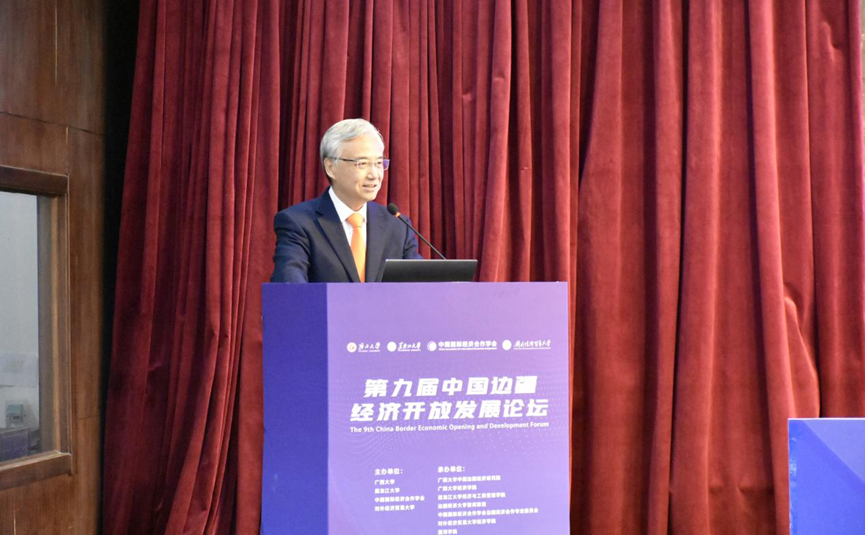
Song Yaoming, former Counselor for Economic and Commercial Affairs, Embassy of Japan presided over the opening ceremony
During the keynote report session, Hu Jiangyun, Second-level Inspector at the Development Research Center of the State Council, delivered a report titled "China's Economic and Trade Cooperation with Neighboring Countries"; Li Guanghui, Dean of the China Border Economic Research Institute at Guangxi University and Vice President of the China International Economic Cooperation Society, systematically expounded on the core implications and practical approaches of "President Xi Jinping's important discourse on border governance and high-quality development of border economies" under the theme.

Hu Jiangyun, Second-level Inspector of the Development Research Center of The State Council, delivers a keynote report
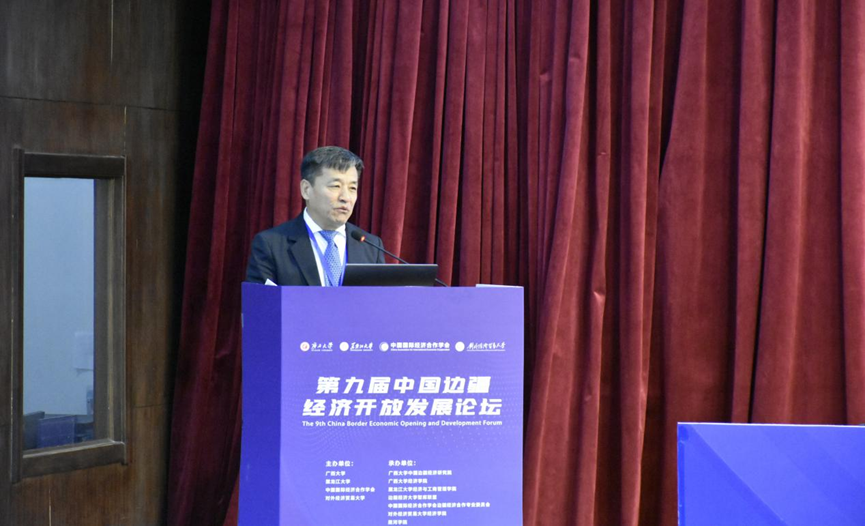
Li Guanghui, Dean of the Guangxi University China Border Economic Research Institute, delivers a keynote report
During the keynote speech session, five distinguished experts—Su Manyong, Zhang Yujie, Wen Ren, Zhang Xian, and Zhang Zhiming—delivered presentations. They shared in-depth research findings and forward-looking insights on pivotal topics including cultivating high-quality productive forces in border regions, establishing new international open hubs, leveraging artificial intelligence to empower industrial upgrading, exploring innovative pathways for open development, and drawing lessons from the successful experiences of free trade pilot zones.
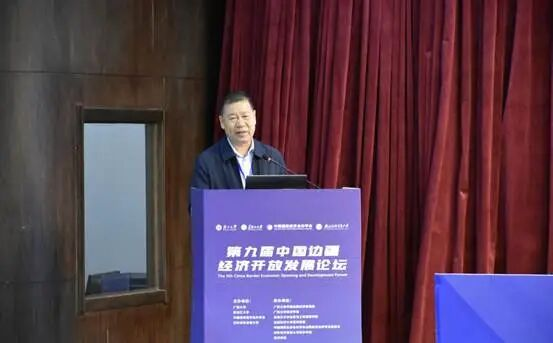
Su Manyong, former Deputy Director of the Policy Research Office (Reform Office) of the Guangxi Zhuang Autonomous Region Party Committee, delivers a keynote speech

Zhang Yujie, Expert Supervisor at the Party School of the CPC Central Committee (National Academy of Governance), delivers the keynote speech
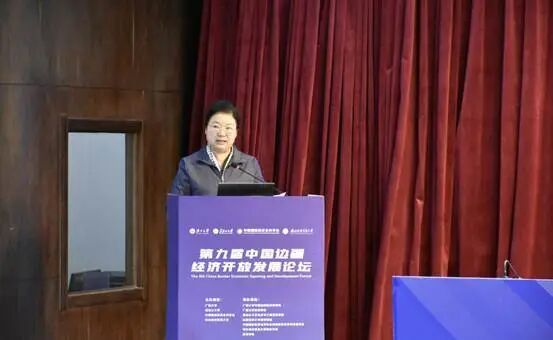
Wen Ren, former Deputy Director of the Statistics and Analysis Department of the General Administration of Customs, delivers the keynote speech
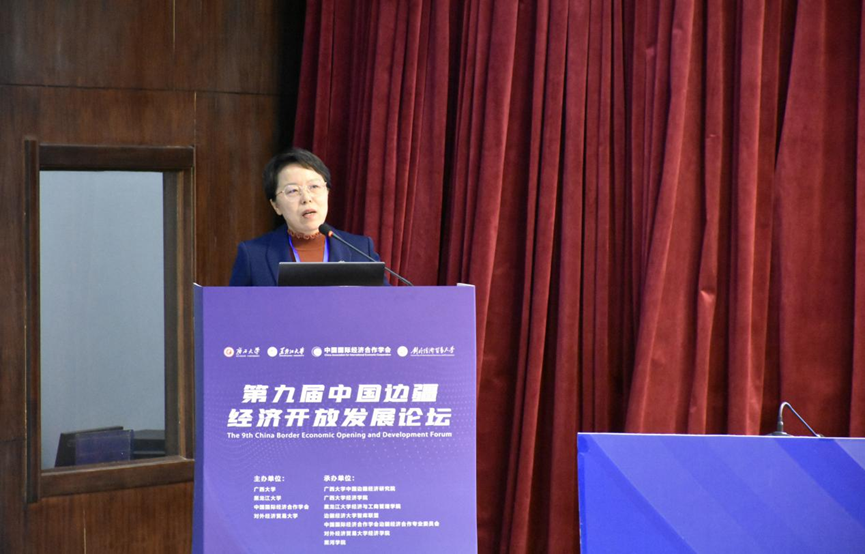
Zhang Xixiang, Vice President and Standing Committee Member of the Party Committee of Jilin University of Commerce, delivers the keynote speech.

Zhang Zhiming, Vice President of Inner Mongolia University of Finance and Economics, delivers a keynote speech
During the forum, Li Jiguang, Vice Dean of the School of Economics at the University of International Business and Economics, released the "2025 China Border Economic Openness and Development Annual Report" edited by Professor Li Guanghui. Building on the research framework of previous years, the report adds three new sections: "Economic Cooperation between Border Provinces and Neighboring Countries," "Local Chapter," and "Major Hot Events in Border Regions." It systematically analyzes the economic performance of China's nine border provinces in 2024, comprehensively evaluates their level of openness, and delves into the progress of economic and trade cooperation between border provinces and neighboring countries. The report highlights typical regional cooperation experiences, such as Guangxi with ASEAN and Heilongjiang with Russia, and provides a review of the 8th China Border Economic Opening and Development Forum, offering crucial decision-making references for the high-quality development of border regions.
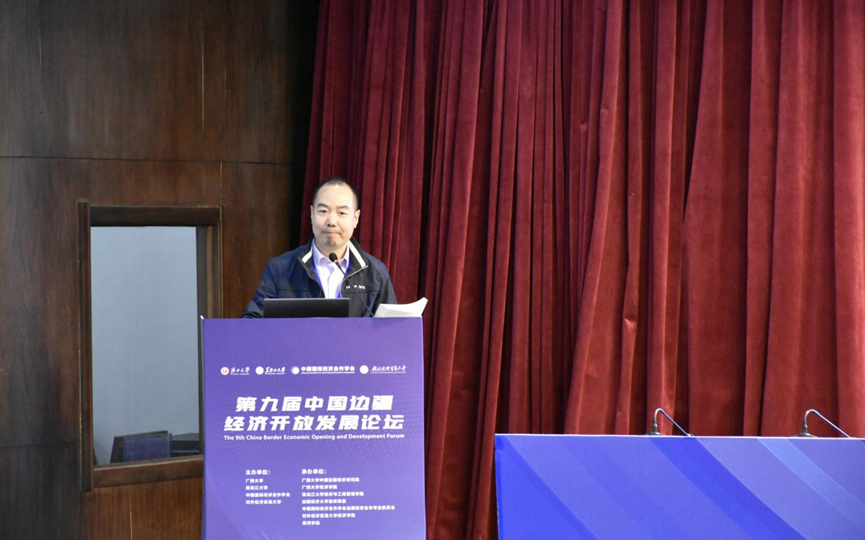
Li Jiguang, Vice Dean of the School of Economics at the University of International Business and Economics, released the Annual Report on the Opening-up and Development of China's Border Economy 2025
During the high-level dialogue session, participating experts and scholars engaged in in-depth discussions across four parallel forums. The topics covered included "High-Quality Development of Border Economies and Building a Community with a Shared Future for Neighboring Countries", "High-Quality Development of Border Economies and the Digital Economy", "Theoretical Framework Development of Border Economics and Practical Economic Development in Border Regions", and "Integration of Border Economies into the National Unified Market". Through these discussions, participants provided strategic recommendations to advance border economic development.
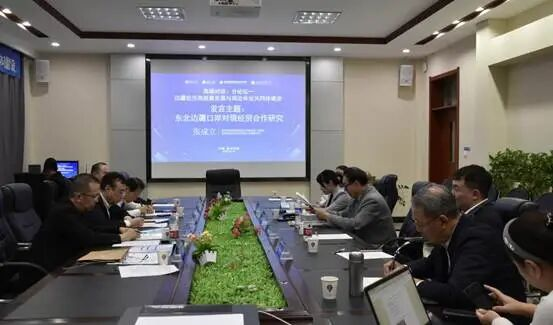
Parallel-section I
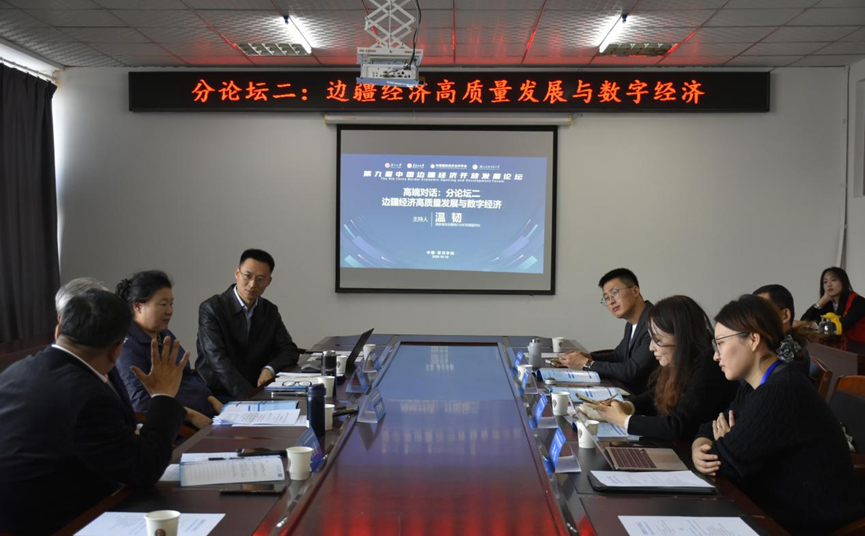
Parallel-section II

Parallel-section III
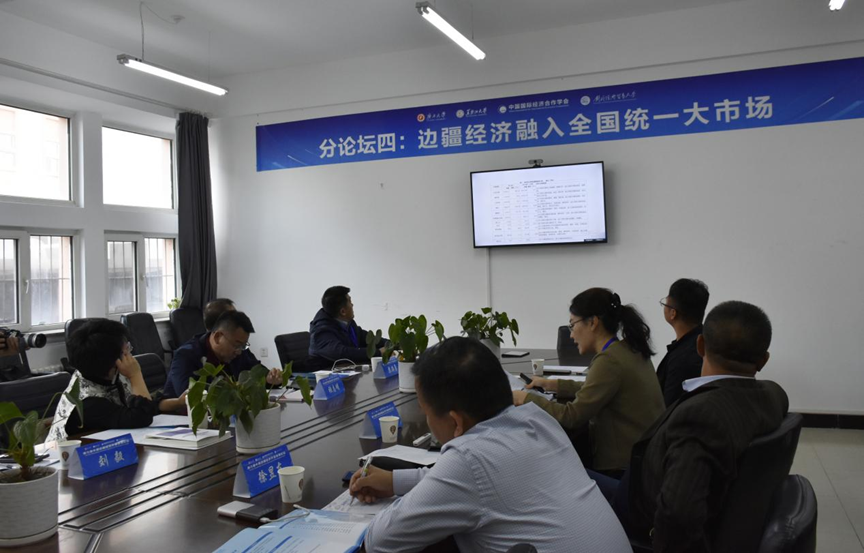
Parallel-section IV
During the forum, the meeting of think tank alliance of Border Economic University was also held, which discussed and deployed a series of work agendas such as the construction of big data, the structure of the alliance, key work and the operation of the secretariat.
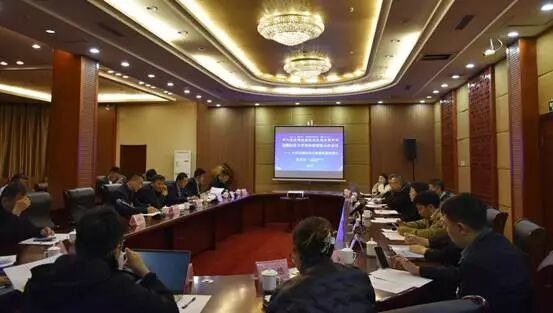
The meeting of the think tank alliance of Border Economic University
At the closing ceremony, delegates from various sub-forums presented their research findings and systematically summarized the consensus and forward-looking perspectives developed during this forum. During the subsequent handover ceremony for the 10th Forum's hosting rights, Wei Feng, Dean of the School of Economics and Business Administration at Heilongjiang University, formally transferred the forum's banner to An Guoshan, Executive Dean of Yanbian University's Border (Prosperity and Enrichment of Border Areas) Research Institute, marking the successful completion of the hosting transition.
Wei Ying, Vice President of Heilongjiang University delivered the closing remarks on behalf of the organizers. She expressed sincere gratitude to all attending guests, experts, scholars, and the host institutions, stating that the forum had yielded fruitful results and profound significance, serving as a high-level academic event that pooled wisdom and charted the course. She pointed out that the successful hosting of the forum had propelled China's border economic research to new heights in exchange, cooperation, and theoretical innovation, injecting fresh intellectual impetus and providing solid intellectual support for the high-quality development of border regions in the new era.
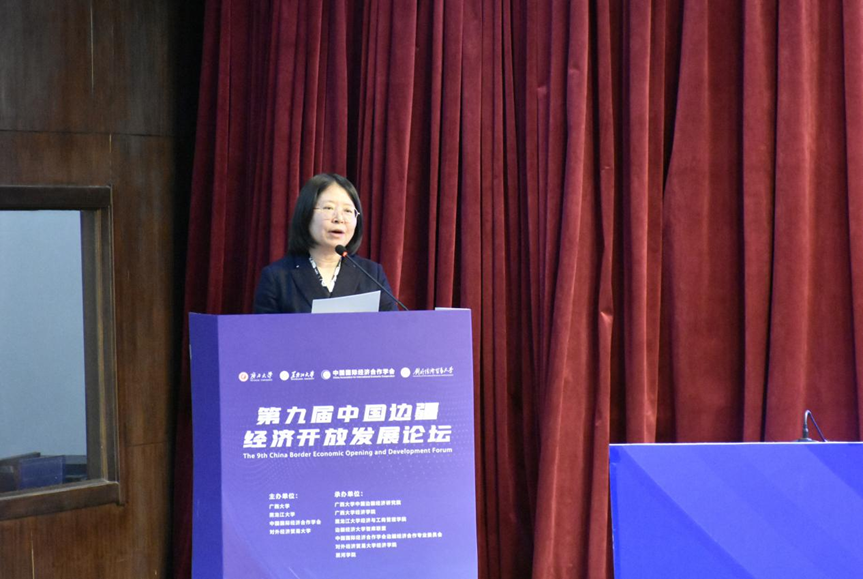
Wei Ying, Vice President of Heilongjiang University, delivers the closing speech on behalf of the organizers
The China Border Economic Opening and Development Forum has successfully held for nine years. It serves as a widely influential think tank platform in the field of border economic research across the country. The fruitful outcomes of this forum will provide crucial intellectual support for the high-quality development of border regions in the new era, deepening cooperation with neighboring countries, and promoting the building of a community with a shared future for the periphery.
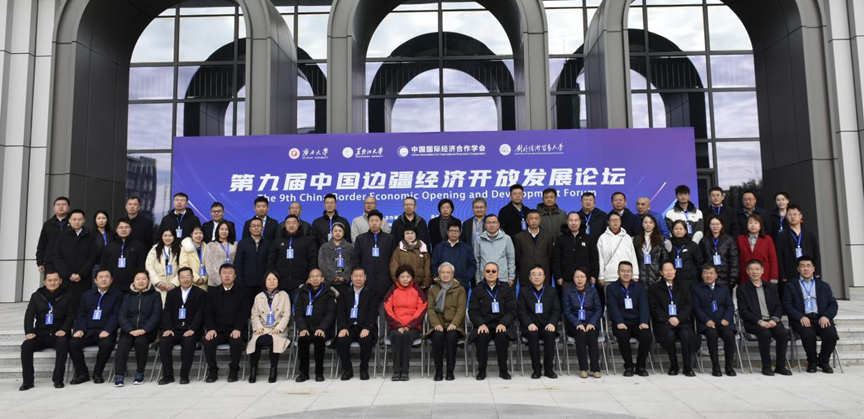
Group photo of participants
Written by Tang Yushuang, Yang Ziqing
Translated by AI
Proof Read by Yu Na, Chen Yanyang
Edited by Gan Ziying
Reviewed by Gong Zheng


 ADD:No.100 Daxue Road, Nanning, Guangxi, China
ADD:No.100 Daxue Road, Nanning, Guangxi, China Tel/Fax:+86-0771-3186687
Tel/Fax:+86-0771-3186687 Email: gse@gxu.edu.cn
Email: gse@gxu.edu.cn